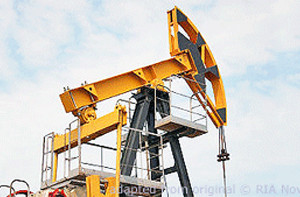The Worrying Truth About Russia’s Oil Industry

(Oilprice.com – Vanand Meliksetian – Dec. 16, 2019)
The widespread adaptation of the combustion engine at the start of the 20th century propelled oil into becoming the world’s most important commodity. Resource-rich countries such as Russia were the beneficiaries of the new global energy order. Its predecessors, the Soviet Union and Imperial Russia, were already among the first and most important producers of oil in the late 19th and early 20th century. The country’s oil sector, however, is facing challenges to maintain its current level of production.
Although Russia ranks 8th in terms of proven oil reserves, it is the second-largest producer with 11.2 million barrels per day (mb/d). Only the U.S. produces more with on average 12 mb/d in 2019. While Russia’s proven reserves are almost 70 percent less than Saudi Arabia’s, it is on par when it comes to production. However, a majority of the country’s oil originates from brownfields in Western Siberia that have been in operation for decades. Therefore, Russian energy companies are applying new technologies to reduce decline rates.
Although Moscow has set its eyes on the Arctic to open new frontiers, the majority of its activities are still in Western Siberia. Therefore, the declining output is a major threat to the sustainability of the country’s oil production. Several state-owned energy companies have achieved significantly lower decline rates by applying techniques such as the lengthening of wellbores, side-tracking to restore wellbore integrity and the use of hydraulic fracturing.
Companies such as Yuganskneftegaz and Purneftegaz (both Rosneft subsidiaries) and Surgutneftegas have reduced the decline rates to about 2 percent compared to 5-6 percent on average across the country and 10-15 percent in Western Siberia.
Russia Oil Despite the difficulties Russia’s oil sector is facing in the long term, the country is expected to slightly increase its production capacity in the short term. When taking into account the commissioning of new fields and slower rates of depletion, the country could be producing 11.35 mb/d by the end of 2020. The extension of the OPEC+ agreement, however, could have a negative impact.
Looming threats
In the long run, much depends on the price of oil. Moscow hasn’t made a secret of its ambition to increase production in the Arctic. The harsh climate and lack of infrastructure are impediments to new energy projects in the region. It also increases the costs for investors. Therefore, high oil prices are a necessity to ensure profitability.
Furthermore, Moscow still faces sanctions from Western countries due to its meddling in Ukraine. This has reduced the availability of technological know-how which previously was provided by Western energy firms such as Shell, Exxon, and Total. Although Russian energy companies can drill independently in certain areas, they have not been able to replicate advanced drilling technologies for hard-to-reach oil deposits. Therefore, much will depend on whether these companies can develop the necessary know-how in the coming years or access Western technology due to the lifting of sanctions.
Lastly, Moscow is expanding tax incentives to improve the financial conditions for companies to boost their activities. According to the Russian Energy Ministry, in 2018 half of the country’s oil was produced under tax exemptions. Although it has proven to be necessary for some areas, Moscow is acting reservedly to implement similar measures in other regions because it reduces the state’s revenues.
The strategic calculation
Maintaining its position as one of the world’s biggest oil producers serves Moscow’s two goals. Primarily, the export of oil and gas boosts the state’s coffers. Approximately, 40 percent of Russia’s state budget is provided by the oil and gas sector. Also, the country’s strategic importance is strengthened and ‘a seat at the table’ is ensured by maintaining the position as one of the world’s largest energy producers. The OPEC+ agreement was made possible by the good relations between Riyadh and Moscow that is reflected in other areas of interests such as Syria and arms deals.
Fortunately for Russia, it possesses the world’s largest proven natural gas reserves which are seen as an important bridging fuel during the energy transition towards a more sustainable future. The country is already the world’s biggest exporter of natural gas with plans to significantly increase LNG production. Despite the headwinds, Moscow will remain an integral and important part of the global energy value chain in the foreseeable future.
[Article also appeared at oilprice.com/Energy/Energy-General/The-Worrying-Truth-About-Russias-Oil-Industry.html]
